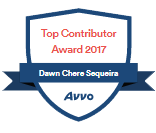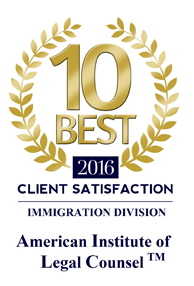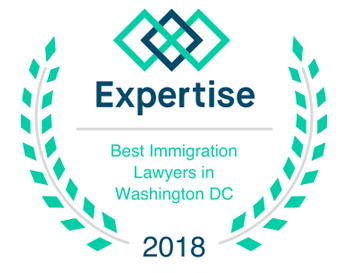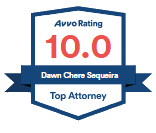EB-1B Outstanding Professor/Researcher

The Immigration and Nationality Act (INA) §203(b)(1) allows foreign nationals who possess “extraordinary ability,” “outstanding professors and researchers,” and certain “executives” and “managers” of multinational organizations to obtain a green card under the first employment-based preference (EB-1).
The largest benefit of the EB-1 category is that there is no backlog of visa numbers. This means that for a foreign national of any country, a green card application (along with employment authorization document and advance parole document) can be filed together with the Form I-140, Petition for Immigrant Worker. So if you look at the Visa Bulletin found here, the row for the EB-1 category lists “C”, which stands for “current” (a/k/a visa number is available).
The second largest benefit is that no labor certification (PERM) is required. This avoids the hassle of dealing with the Department of Labor (DOL) as well as the extended time associated with the PERM process (prevailing wage determination, advertising, and certification of Form 9089).
To qualify under the EB-1B, Outstanding Professor or Outstanding Researcher category, a foreign national must be able to prove “excellence” by the “international” community in an “academic field” and must have at least three years of research or teaching experience in the field.
The foreign national must also meet at least two of the following six criteria (similar to the EB-1 Extraordinary Ability category):
- Prizes or awards in the field
- Membership in associations requiring excellence (not just paid membership)
- Articles about the person in professional publications
- Participation as a judge of the work of others
- Original scientific or scholarly research contributions
- Authorship of scholarly books or articles in the field
At Legacy Immigration, we know how to narrowly define the “academic field” so our client is now a “big fish in a small pond.” For instance, if we define the field as “cervical cancer,” there are countless foreign nationals internationally regarded for excellence in this field. However, if we define the academic field more narrowly, such as “human papilloma virus,” then the field is narrowed down to those who focus on the papilloma virus in cervical cancer. It is also crucial that the field is not defined too narrowly so that the petition is tailored to the applicant.
Frequently Asked Questions
The employer must either be a university or institution of higher learning. If a private company or institute is offering the employment, then that private company or institute must also prove that it: 1) employs at least three individuals engaged in full-time research positions; and 2) has “documented” accomplishments in the academic field.
No. There is no requirement for the employer to test the labor market by filing an Application for Permanent Labor Certification.
No, an offer of “permanent” employment is required. A university or institution of higher learning must offer a permanent, tenured or tenure-track position that involves teaching. If the position is for a researcher, a non-tenure track position may count as long as the position is for an “indefinite” period.
If you must self-petition because you do not have an employer sponsor, please visit our page entitled “National Interest Waiver
It depends. First, USCIS treats “unlawful presence” separate from “unauthorized employment.” For unlawful presence, your employer can file your I-140 and green card application as long as you have less than 180 days of unlawful presence. Note that filing the green card application will stop additional unlawful presence from accruing. Also you must have been inspected and admitted into the U.S.
However, USCIS treats “unauthorized employment” differently. Filing the green card application does not allow you to continue to work without authorization. You can only begin working after the employment authorization document is issued. If you continue to work illegally after filing your green card application (because you have not received your employment authorization document), this time will be counted towards the 180 days. Therefore, you must have less than a total of 180 days of unlawful presence and unauthorized employment.
The only exception is if you are protected under 245(i).
The only exception is if you are protected under 245(i).
Maybe. In the past, USCIS has held that such positions are not “permanent”. However, a successful argument to prove that the position is “permanent” by showing that the university intends to continue applying for grants and that there is a “reasonable expectation” that funding will continue.
Teaching experience gained while working on an advanced degree may only be counted if the foreign national acquired the degree, and if the teaching duties were such that he or she had full responsibility for the class being taught.
Research experience gained while working on an advanced degree may only be counted if the foreign national acquired the degree, and if the research conducted toward the degree has been recognized within the academic field as outstanding.
How We Can Help
- We meet with the client to review the qualifying documentation in order to define “the field of endeavor.”
- We work with our clients to gather key information that assists us in proving that our client has received “international recognition as outstanding in their field.”
- We provide an exhaustive list of supporting documentation to our client in order to increase our chances of an approval without issuance of a Request for Evidence.
- We assist our clients to prepare letters of recommendation to be signed by their referrals.
- When applicable, we obtain opinions from experts in the field who attest to our client’s international recognition.
Contact Us
Please give us a call to discuss your case. In-person consultations are available Monday through Friday from 8:00 am to 8:00 pm and Saturdays from 8:00 am to 5:00 pm. Please call our office at 301-529-1912 , text us, submit a request for consultation form below.
Please be sure to provide a timeline of events along with details of your entire immigration history.









